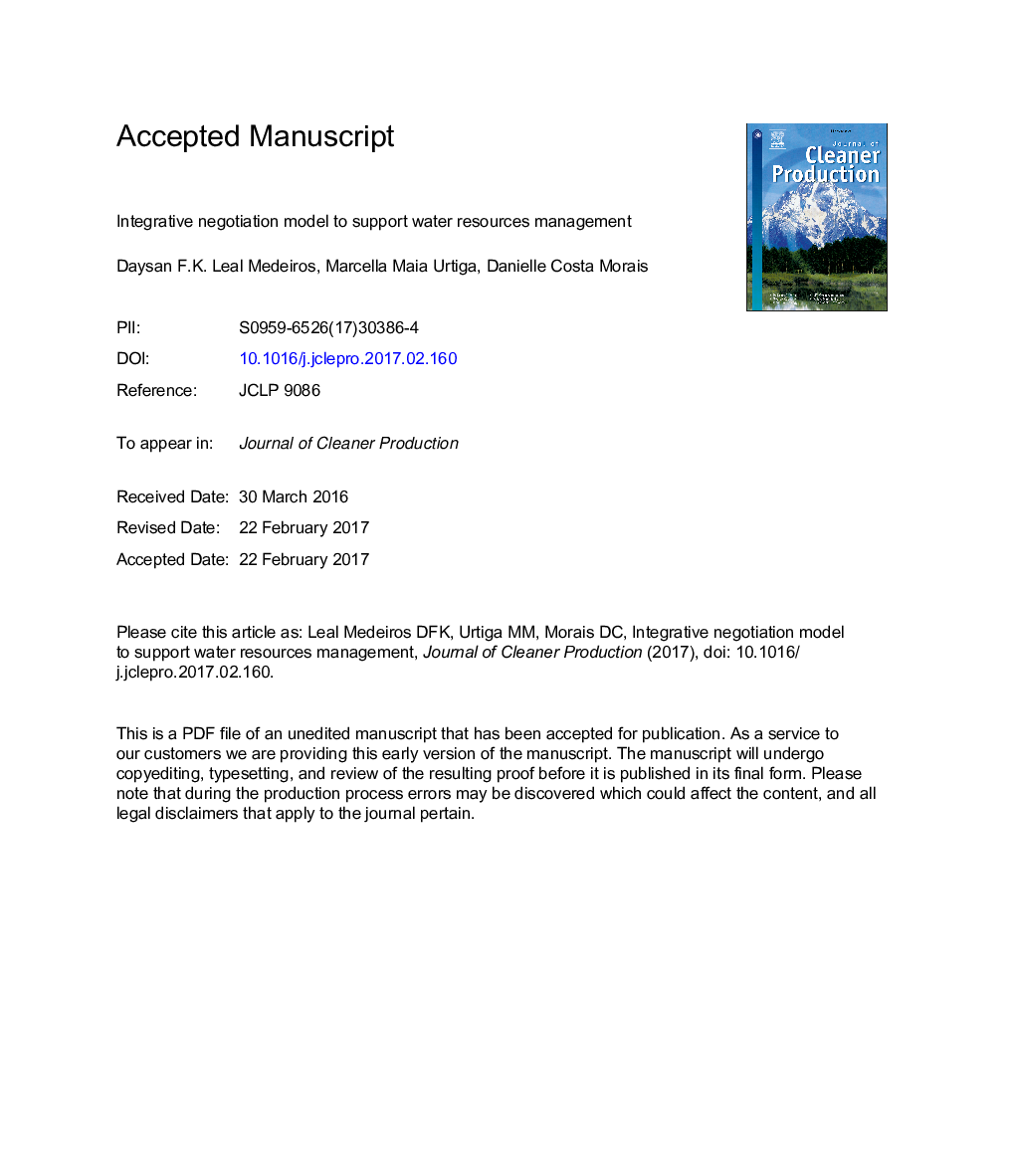| کد مقاله | کد نشریه | سال انتشار | مقاله انگلیسی | نسخه تمام متن |
|---|---|---|---|---|
| 5480578 | 1522103 | 2017 | 32 صفحه PDF | دانلود رایگان |
عنوان انگلیسی مقاله ISI
Integrative negotiation model to support water resources management
ترجمه فارسی عنوان
مدل مذاکره یکپارچه برای حمایت از مدیریت منابع آب
دانلود مقاله + سفارش ترجمه
دانلود مقاله ISI انگلیسی
رایگان برای ایرانیان
کلمات کلیدی
منابع آبی، مذاکره یکپارچه، نقشه های شناختی، تصمیم گیری مشارکتی،
موضوعات مرتبط
مهندسی و علوم پایه
مهندسی انرژی
انرژی های تجدید پذیر، توسعه پایدار و محیط زیست
چکیده انگلیسی
By following the steps of the Integrated Water Management (IWM) approach in the European Union, Brazil has moved from a top-down approach to water management to a participatory one that involves different segments of society. Since decisions regarding water affect all economic activities, the environment and life in communities, it is important that society takes an active part in opportunities to discuss and collectively decide on water issues. When this is done, multiple perspectives can be taken into consideration such that the sustainability of water management and planning is more likely to be maintained. Nevertheless, many conflicts arise from society having to share water, a limited resource, for multiple uses. The volume of water needed and the way it is used for certain activities, such as by agriculture and industry, can negatively impact its availability and quality for other uses. This paper proposes an integrative negotiation model to assist watershed committees (WSCs) to deal with conflicts regarding water pollution. In a pre-negotiation phase the decision-makers (DMs) use the Strategic Options Development Analysis (SODA) method to structure the problem and to identify the relevant factors of the decision problem. DMs evaluate the problem from a multi-attribute perspective. Additionally, a post-negotiation phase is proposed with evaluation criteria to monitor how the compromise solution chosen is affecting the quality of water and if the actors are fulfilling their parts of the agreement. A virtual case study is presented to illustrate the applicability of the model, where three DMs are considered as part of a WSC, namely a representative of civil society, a representative of the public sector, and a representative of water users. The WSC has used social, economic and environmental attributes to evaluate proposals and counter proposals. They have arrived at a balanced agreement, taking into consideration their interests. The model helps reduce conflicts between the DMs and it is flexible in the sense that it can be applied in different conflicts and contexts. It is also easy to implement in most WSCs.
ناشر
Database: Elsevier - ScienceDirect (ساینس دایرکت)
Journal: Journal of Cleaner Production - Volume 150, 1 May 2017, Pages 148-163
Journal: Journal of Cleaner Production - Volume 150, 1 May 2017, Pages 148-163
نویسندگان
Daysan F.K. Leal Medeiros, Marcella Maia Urtiga, Danielle Costa Morais,
